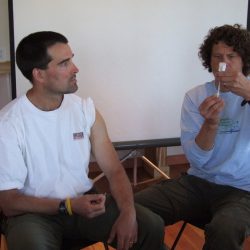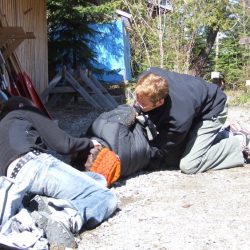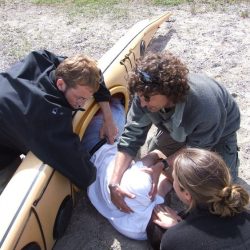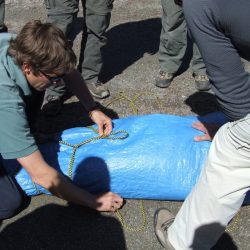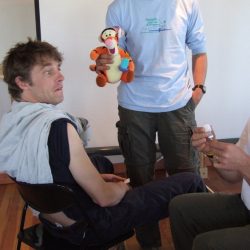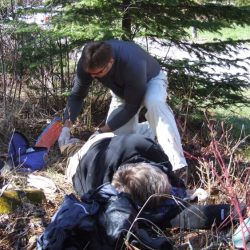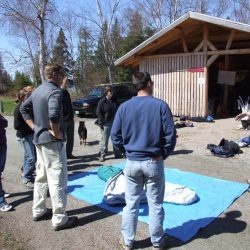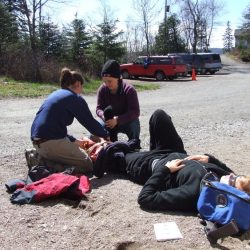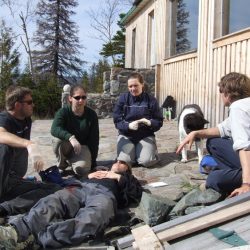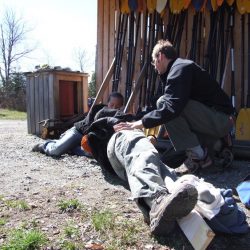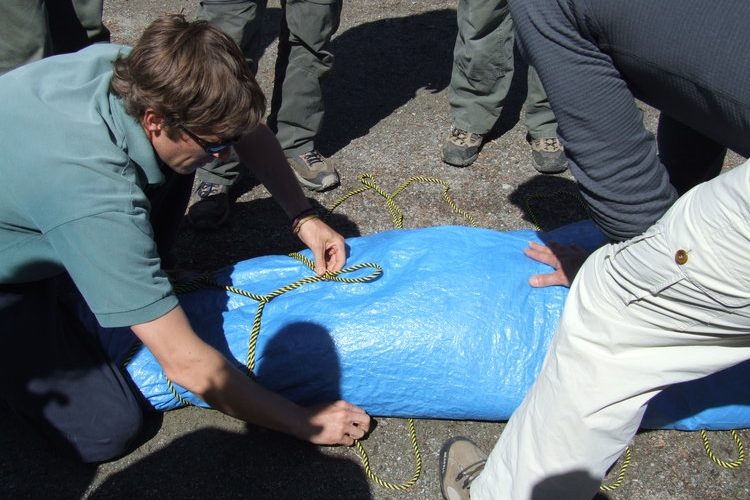
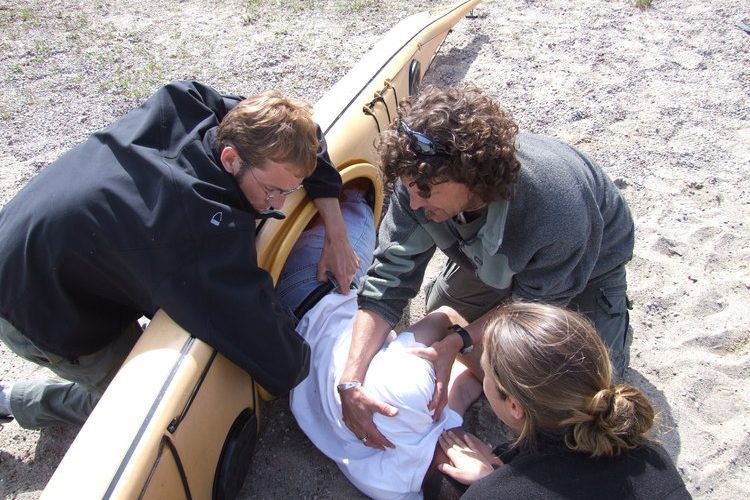
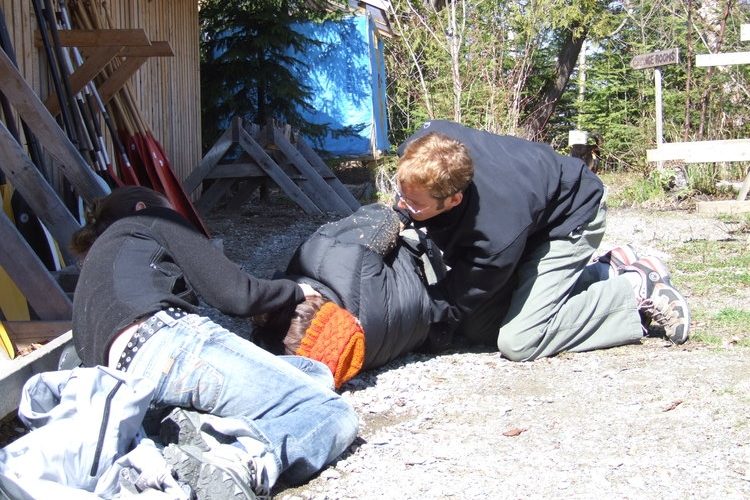
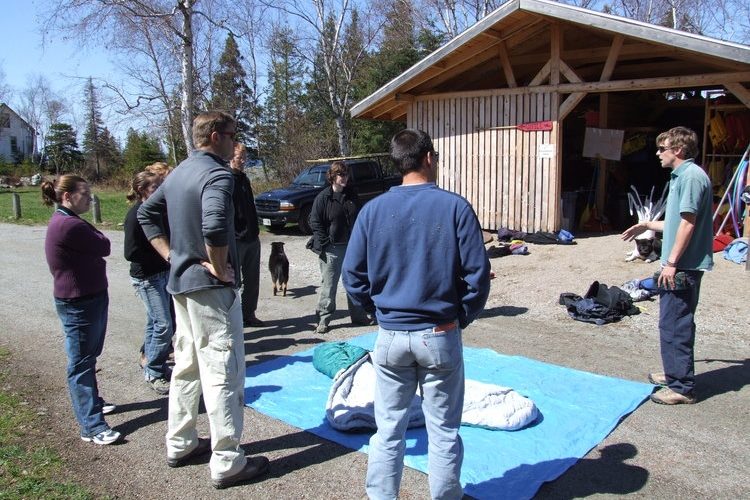
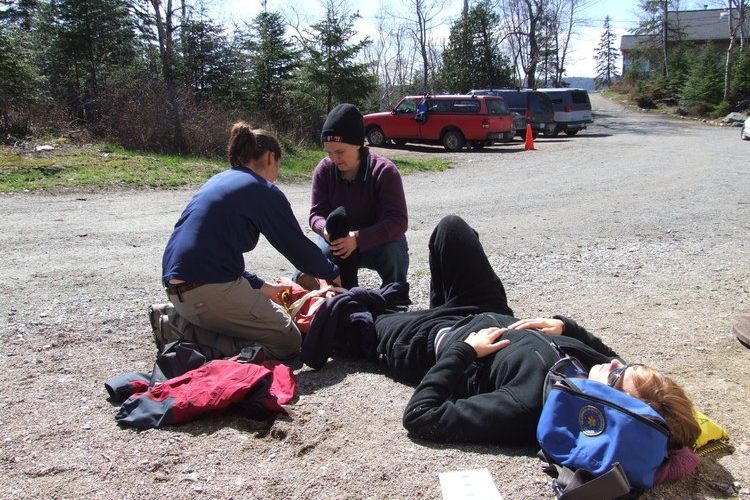
Course Description
This is a 72-80 hour course that covers and expands the principals and practices of the first two levels. It introduces many of the common medical problems that you may encounter in a wilderness environment. It is a course designed to give you the tools to make effective evacuations decision and to more effectively deal with long-term care and infection prevention.
It is the requisite certification for outdoor leaders and professional guides. This is a performance-based certification.
Dates
Starts: 9:00 am
Ends: 4:00 pm
Price
$960 course only
Course Includes
- Beach Camping Accommodations
- Course Materials
- Professional Instruction
- Snacks and hot drinks
Extra Course Options
- Meals available ($390 all; $130 lunches only)
- Goose dome (Queen bed) $145
- Blueberry prospector (Queen bed) $195
- Gold prospector (Queen bed) $290
- Glamdome (Queen bed) $545
- Shared room (2 queen) $1150
- Private room (1 queen) $995
Certification Notes
Successful completion with certification for all courses is based on 100% attendance, satisfactory performance on homework assignments and written quizzes, demonstrated proficiency with practical skills, and a successful grade on a final written exam. We are committed to making reasonable accommodation to any student with special needs.
Course Content
General Content Information
- Practical Scenarios
- First Aid and Wilderness Emergency Care
- Leadership & Liability
- Wilderness First Responder Scope of Practice
- Anatomy & Physiology
- Homeostasis
- CNS structure and function
- Circulatory System structure and function
- Patient Assessment System
- Scene Survey
- Primary Survey – drills & practice
- Rapid trauma Survey
- Secondary Survey – scenarios / drills & practice
- Patient interview, SAMPLE, OPQRST
- Vital Signs/ Recording / Interpretation
- Physical Assessment Focused or Head to Toe
- Rapid trauma assessment
- Neuro assessment
- Chest Auscultation
- Documentation
- Basic Life Support
- Airway management and evacuation considerations
- CPR in the Wilderness
- Traumatic Injuries
- Head / Chest / Abdomen / Spine – practical scenarios
- Shock: Recognition & Management
- Patient Stabilization and Evacuation
- Patient Positioning / Carries – drills & practice
- Spinal structure and function, cord injury
- Spinal Cord Injury Management – drills & practice
- Managing the spine injured patient over a long evacuation
- Spinal assessment
- Musculoskeletal Injuries
- Assessment of Limb threatening injuries
- Sprains / Strains / Fractures / Dislocations
- TIP, reducing dislocations
- Traction Splinting
- Immobilization & Splinting Techniques – scenarios / drills & practice
- Issues
- Environmental Emergencies
- Heat Illnesses / Hyperthermia
- Cold injuries / Hypothermia – practical scenario
- Drowning / Near Drowning
- Animal / Reptile Issues
- Lightning
- Allergies, Anaphylaxis & Epinephrine – practical scenario
- AMS / HACE / HAPE
- Acute Abdominal Pain
- Medical Emergencies
- Abdominal Assessment & History Gathering
- Scenario / Assessment Drills / Study
- Wound Management in a Remote Setting
- Guiding Principles
- Short Term / Long Term Care
- Penetrating Injuries
- Burns / Blisters / Eyes / Teeth
- Practical Skills / Drills & Scenarios
- Water Disinfection – What Works / What is Available
- Medical Problems
- Diabetes
- Seizures
- Medications
- Practical Scenarios
- Common Expedition Problems
- UTI / Blisters / Constipation / Diarrhea / URTI
- OTC Medications
- Case Studies
- Leadership and Incident Command
- Large scale Scenario
